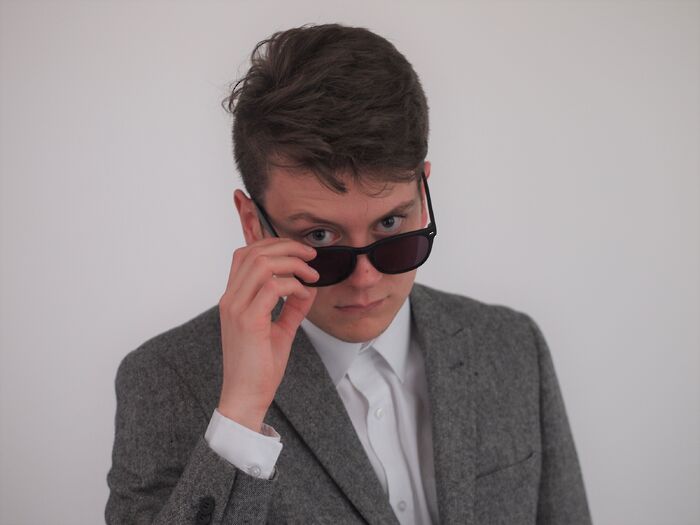The Bacchae preview
Sex, violence and gender: a Greek tragedy at it’s finest

“Violence…and sex” is the answer I am given when I ask director Amelia Hills what her upcoming production of The Bacchae is about. Surprise, surprise really - the Greeks always did have a special passion for staging death and desire (so did Freud). The Bacchae begins with the arrival of Dionysus in Thebes, precipitating an unfortunate series of events involving general revelry, orgies and a bit of mob violence on the side. Sometimes, one can’t help but wish the entry of one’s lecturer had similar effects. This production, to be staged at the Corpus Playroom, promises a heady combination of brains and brawn, intellect and physicality, civilisation and chaos etc. etc. If you haven’t yet guessed, dualities are central to this play.
"The Bacchae presents hysteria as a universal undercurrent flowing beneath the surface of whole societies and human psyches alike"
Unpacking the themes a little more, I am impressed by the wide-ranging ideas Amelia and Leo Benedict (one of the associate directors) are interested in exploring. Our conversation circles around notions of performance: its layers and ambiguities, facets and boundaries. Unusually, The Bacchae’s chorus is integrated into the plot, so commentary and narration come from within the play-world itself as the cast take on merged roles inside and outside the action. Amelia explains that this is to draw the audience’s attention to the performativity of it all, particularly the ways in which gendered performances must be constructed and represented on stage, and in life. What does it mean to play a woman, particularly through the role of the historically male chorus? Judith Butler, somewhere, smiles knowingly to herself. Dionysus (Rosy Sida) too is presented as an androgynous, ambiguous figure, liberated from society’s sexual and moral codes. Rosy tells me that the god represents “a deviation from all expectations”, transcending gender in both playful and confronting ways.
Another way in which performance and gender are to be interrogated is through the play’s presentation of hysteria. “What does a feminist staging of hysteria look like?” I ask Amelia. She explains that she wants to “draw out the silenced female voice” and “take a show about men’s responses to hysteria and make it about the women”. The production is intended to generate a disturbing and empowering ambiguity: what can we attribute to semi-divine Dionysus, and what can we attribute to the violent eruption of repressed human darkness? Once the ‘female malady’, The Bacchae presents hysteria as a universal undercurrent flowing beneath the surface of whole societies and human psyches alike. Ben Galvin (Pentheus) describes his character as a “horrible misogynist, who we somehow still have pity for” – in part I suspect, because we recognise his terror of the hysteria simmering within himself. Torn between human reason and divine madness, Pentheus faces his own destruction. The way in which the play dances in the liminal space between sanity and madness promises to pose intriguing and difficult questions to the audience.
If you are actually looking for a break from the intellectual heavy-lifting of Tripos (I have been breaking a serious sweat writing this preview), relief is on its way. Watching the cast run through a particularly dramatic piece of movement work, I am reassured that this is very much a play grounded in the body. The physicality on show is strange and eerie, promising danger and tension that threatens to spill out and spill over (once you’ve seen the show, you’ll know exactly which scene I’m talking about). The rehearsal process seems highly collaborative and the cast works well together to rein in and spool out the tense energy of the scenes. The staging itself is clearly intended to stimulate reflection and provide another avenue through which the play can speak its ideas.
Physical and cerebral in equal measure, The Bacchae opens on Tuesday 27 November, 7pm at the Corpus Playroom. Time to join the bacchic ritual, I suppose (the ideal stress relief for Week 8).
 News / Clare Hall spent over £500k opposing busway 24 December 2025
News / Clare Hall spent over £500k opposing busway 24 December 2025 Comment / The ‘class’ of Cambridge24 December 2025
Comment / The ‘class’ of Cambridge24 December 2025 News / Caius mourns its tree-mendous loss23 December 2025
News / Caius mourns its tree-mendous loss23 December 2025 News / Girton JCR publishes open letter expressing solidarity with Palestine25 December 2025
News / Girton JCR publishes open letter expressing solidarity with Palestine25 December 2025 Comment / Yes, I’m brown – but I have more important things to say22 December 2025
Comment / Yes, I’m brown – but I have more important things to say22 December 2025










